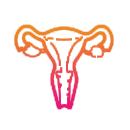
PCOS: Symptoms, Causes, and Treatment
PCOS or Polycystic Ovarian Syndrome is a condition with a wide spectrum of clinical features including irregular menstrual cycles, the tendency of weight gain, hyperandrogenism which causes acne (pimples) and hirsutism (hair growth over chins, lips, thighs) and insulin resistance.
What are the Symptoms of PCOS?
Around 2-26% of women in the reproductive age group are affected by PCOS. It presents itself with various symptoms.
- Irregular periods
- Heavy bleeding
- Facial hair growth
- Acne
- Weight gain
- Male pattern baldness
- Darkening of the skin
- Metabolic syndrome
- Infertility
- Obesity
What are the Causes of PCOS?
PCOS is an endocrine disorder and has genetic origins. It will manifest in adulthood if a person with abnormal PCOS gene has:
- Obesity
- Sedentary lifestyle
- Unhealthy eating habits
PCOS can be managed with lifestyle modifications by having a healthy diet, addition of exercise in the daily routine and weight loss. Various medications help in regulating menstrual cycle, insulin resistance, and treating acne and hirsutism. In infertility patients, superovulation with timed intercourse/ IUI (Intrauterine Insemination) is suggested along with advanced fertility-enhancing treatments like IVF/ICSI and ovarian drilling.
Diet and lifestyle modifications play an important role in bringing PCOS under control. The chances of conception in PCOS patients are further increased with assisted reproductive techniques. To steer clear of PCOS, one must maintain a healthy weight and a low-fat low-carb healthy diet along with increased activity level throughout the day to help prevent insulin resistance.
